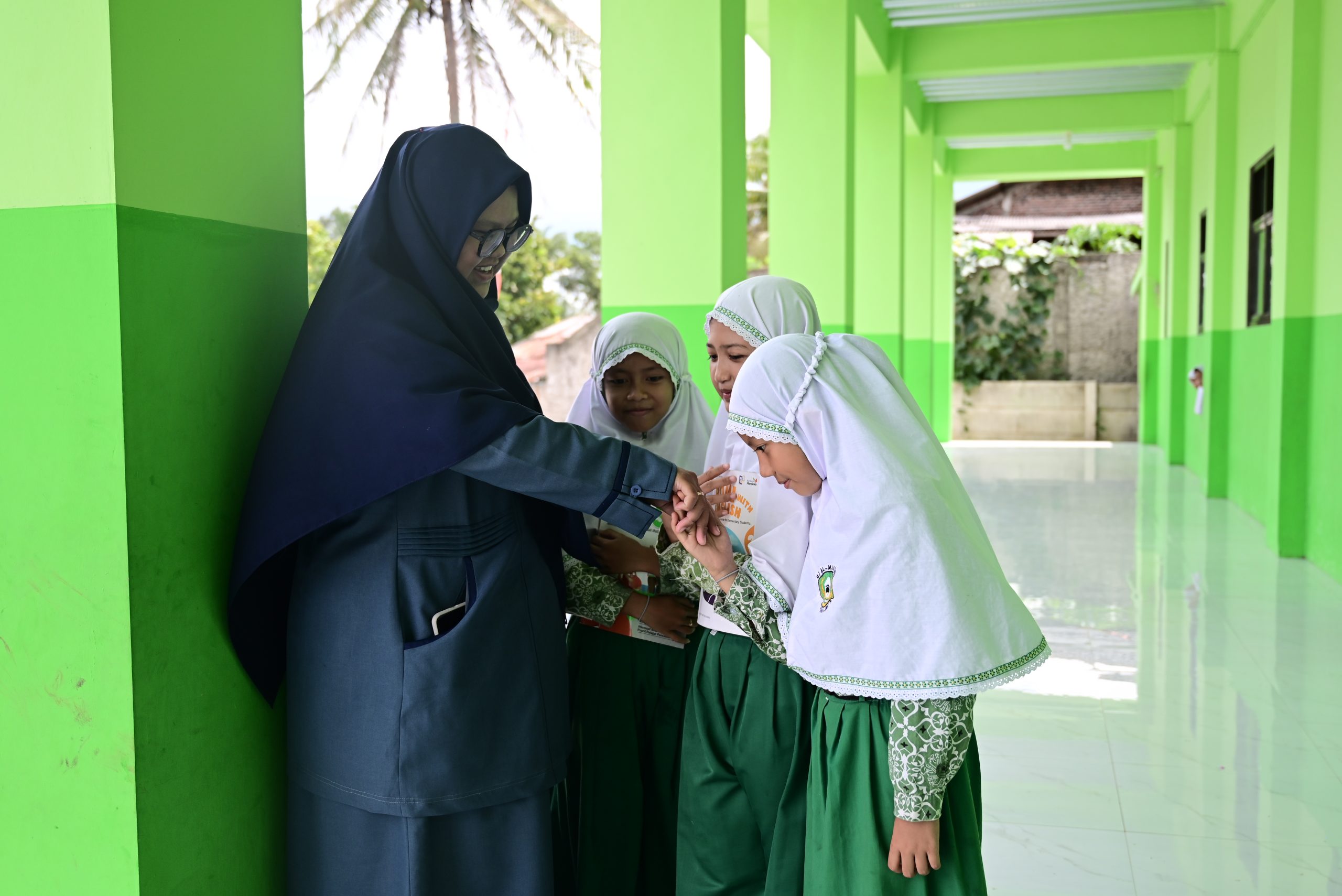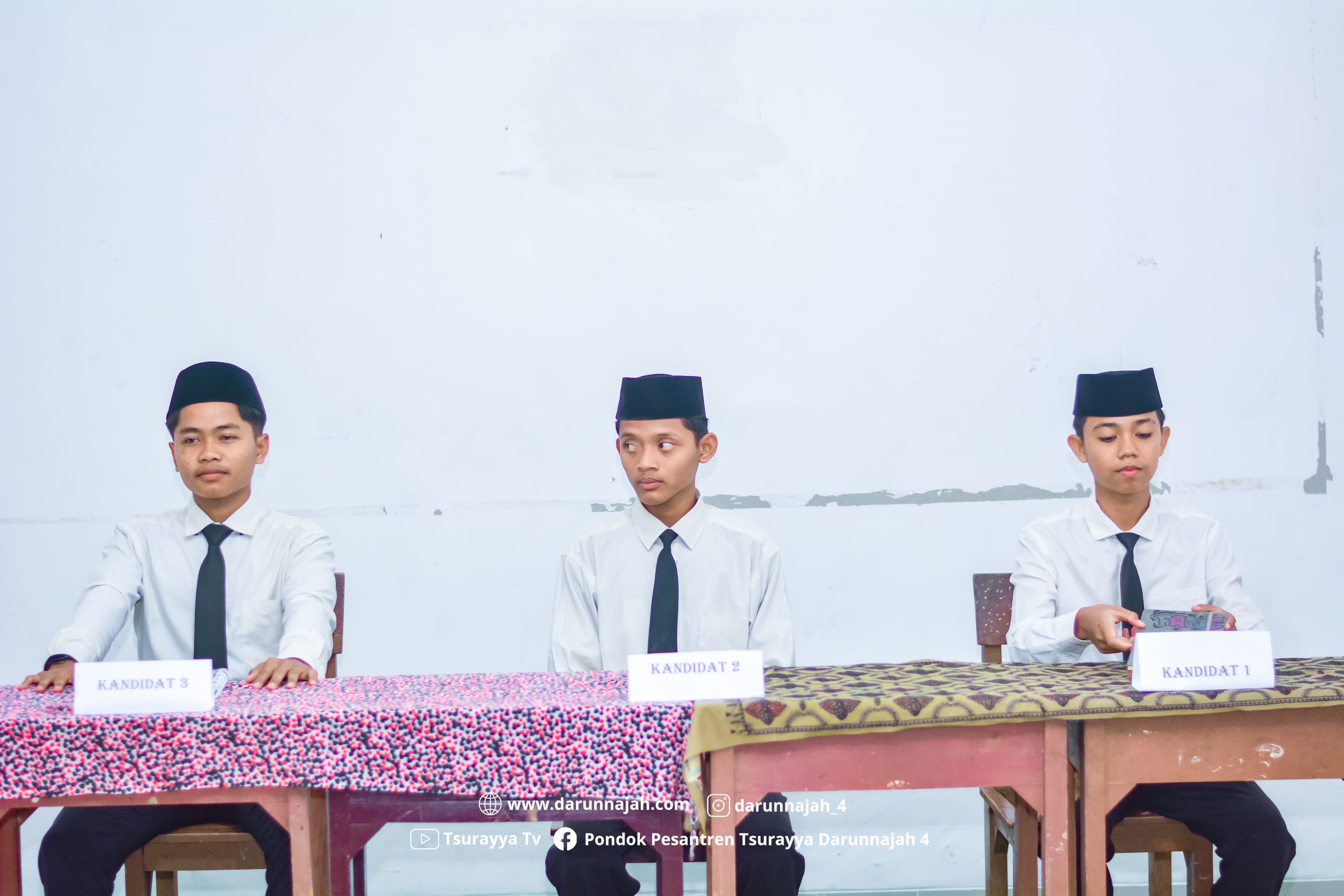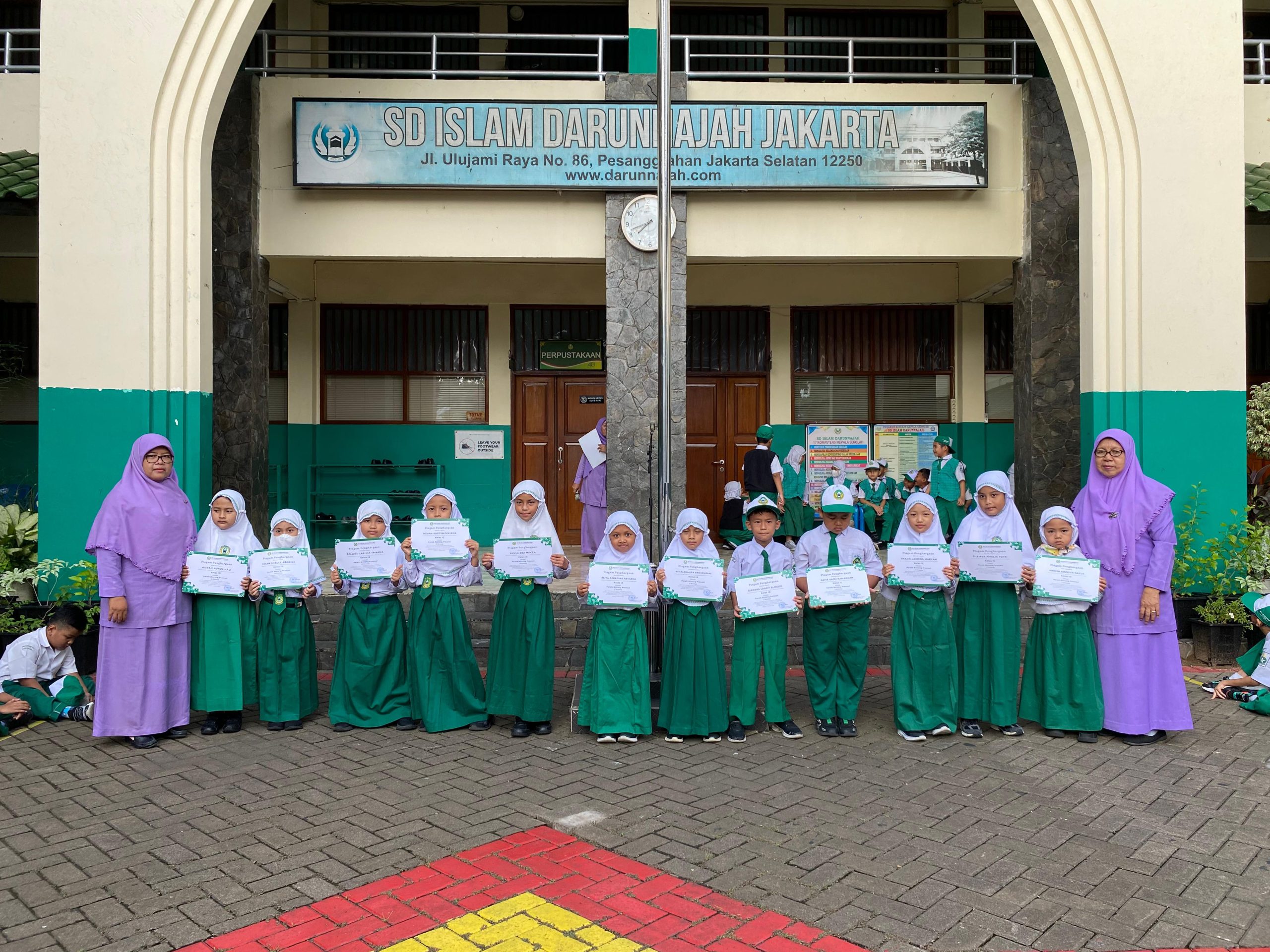 Traditionally pesantrens in the Islands of Java, Nusatenggara and Kalimantan (and also some parts of Malaysia) are called Pondok – literally means bamboo hut. It probably because the dormitories where the students lived were, in the past mostly built from bamboo. Stereotype lifestyle of the pesantren, their modest bamboo or wooden structures, the students’ absolute devotion to the leaders, and their intensive study of classical books on Islam. However, in this modern days many pesantrens are built in modern building structure like campus of the Universities.
Traditionally pesantrens in the Islands of Java, Nusatenggara and Kalimantan (and also some parts of Malaysia) are called Pondok – literally means bamboo hut. It probably because the dormitories where the students lived were, in the past mostly built from bamboo. Stereotype lifestyle of the pesantren, their modest bamboo or wooden structures, the students’ absolute devotion to the leaders, and their intensive study of classical books on Islam. However, in this modern days many pesantrens are built in modern building structure like campus of the Universities.
The word pesantren derives from the word santri with the prefix pe and suffix an, thus literally means the place of santri. Now most of Islamic boarding schools in the country throughout the archipelago are called Pondok Pesantren. However, people may call Pondok or Pesantren separately, which has the same meaning of Pondok Pesantren.
Several pesantren have served as major centers of Islamic education since the early 16th century. Most of these pesantren were established with the main objective to preserve Islamic teachings and disseminate Islam in society.
Pesantren Tebuireng in the city of Jombang East Java is one of the oldest pesantrens in Indonesia as it was established in 1899. This pesantren is popular in the country since its founding father was Kiai Hasyim Asyari who was also the founding father of NU – the largest Muslim organization in Indonesia. He was also the grandfather of former President Abdurahman “Gus Dur” Wahid.
Actually the spiritual and religious purposes of a pesantren outweigh any political or economic aims. People filled with various qualities like virtuosity, deep spirituality, intellectuality and life skills are the expected product of the Islamic school educational system. Under this system, the quality of students, or santri, are measured by the number of books they have studied and the different Muslim clerics from whom they have received tutelage.
Each pesantren head offers a specific area of study and may place different emphases on aspects of Islamic teachings, and were often recognized from their area of expertise.
Most of pesantrens teach classical Islamic teachings such as Fiqh or Islamic Jurisprudence, Usul Fiqh – system of Islamic Jurisprudence, Hadith – traditions purporting to preserve the decisions, actions, and utterances of Prophet Muhammad, Tafsir – Koran Exegesis, Tawhid – Islamic Theology, Tarikh – the History of Islam, Tasawuf – Islamic Sufism and Akhlaq – Islamic ethics. In modern pesantrens, students also study general knowledge such as mathematics, physic and English.
Although pesantrens are generally associated with NU (because it has thousands of pesantrens). But in fact Muhammadiyah also has (few numbers) pesantrens. By the same token similar organization like NU in Nusatenggara called Nahdhatul Wathan, Al-Khairat and DDI in Sulawesi have significant numbers of pesantrens.
In mancy cases the role of pesantrens as education center has changed since their leaders (Kiais) are involved in politics, for example running their candidacy as city mayors or heads of districts even as presidential candidates.
Graduates of the pesantrens spread all over Indonesia even in the neighboring countries such as Singapore, Brunai and Malaysia. They are not only teachers of Islamic boarding schools, but they also enter various professions such as journalists, businessmen, politicians, lecturers as well as head of government institutions at national or local levels.
(Santri Tv/Rafi)
Tulisan terkait:
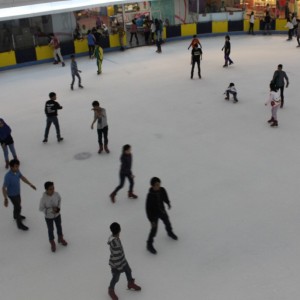 Shyla Arabell, Siswi Kelas 5 Sekolah Dasar Mewakili Indonesia Mengikuti Kompetisi Indonesia Ice Skating Open 2016
Shyla Arabell, Siswi Kelas 5 Sekolah Dasar Mewakili Indonesia Mengikuti Kompetisi Indonesia Ice Skating Open 2016  Bank Indonesia bersama santri indonesia
Bank Indonesia bersama santri indonesia 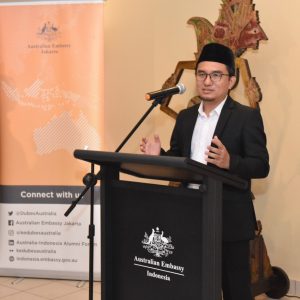 Menyukseskan Presidensi G20 Indonesia, Alumni Darunnajah Inisiasi Buku Tematik Bahasa Indonesia dan Inggris
Menyukseskan Presidensi G20 Indonesia, Alumni Darunnajah Inisiasi Buku Tematik Bahasa Indonesia dan Inggris 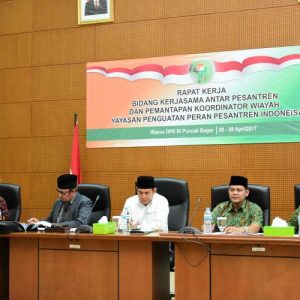 Pondok Pesantren Darunnajah Hadiri Rapat kerja Yayasan Penguatan Peran Pesantren Indonesia (YP3I) di Puncak Bogor
Pondok Pesantren Darunnajah Hadiri Rapat kerja Yayasan Penguatan Peran Pesantren Indonesia (YP3I) di Puncak Bogor

